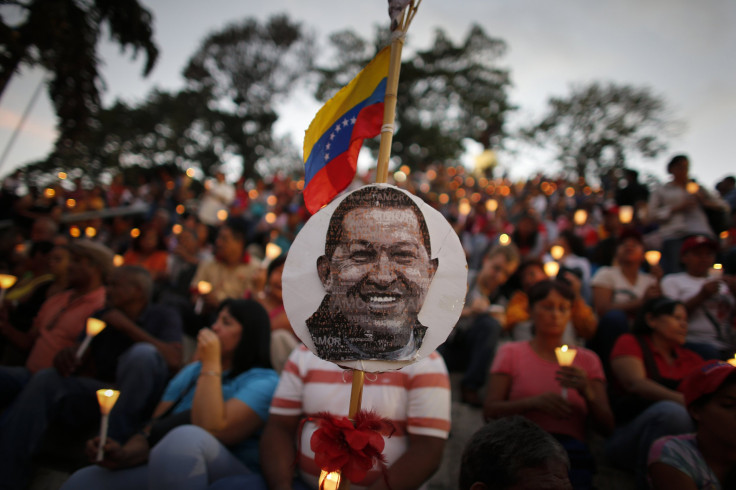
When Hugo Chávez was alive and presiding over Venezuela, he had a 160-foot mausoleum built in Caracas for the remains of Simón Bolívar, the 19th-century national liberator whom he idolized. The mausoleum was reported to be a kind of "shrine" dedicated to a figure for whom Chávez was rumored to have once left a chair open during meetings.
Now a much humbler -- but perhaps more fitting -- shrine to Chávez has been built, in the 23rd of January slum in Caracas. Tens of thousands of Venezuelans have come to the shrine, called "Saint Hugo Chávez of the 23," to pay homage to the late president. An article from the AP describes it as having a "simple tin roof" and residing on a "noisy street" in the hillside slum which overlooks downtown. It also describes a devotee who, as an offering, places on the floor in front of a small statue of Chávez tiny cups of espresso, of which he was said to consume dozens a day.
Nicolás Maduro, his successor, has taken to referring to the late president as "the redeemer Christ of the Americas" and describing Chavistas like himself as "apostles," according to the National Post. Elections will be held on April 14 to decide if Maduro will remain in office or if opposition candidate Henrique Capriles, who was defeated handily by Chávez in 2012, will take the helm. Maduro is running on a platform consisting nearly entirely of a continuation of the late president's policies. Recently he made news in the U.S. after claiming he was visited by Chávez in the form of a "little bird," who communicated to him his support in the upcoming elections. A Spanish-language website went up shortly after Chávez's death which logs the number of times Maduro has made reference to Chávez during public appearances.
One of the women mentioned in the AP article wore an armband with "4-F" on it, which refers to Feb. 4, the date of the 1992 failed coup which first launched Chávez into the public eye. Then a paratroop commander in the army, Chávez was jailed for two years as a consequence of the coup, but convinced his captors to let him appear on television to address a message to the Venezuelan people in which he told them his revolution had failed "for now".
The Catholic church in Venezuela disapproves of such sanctification of the late leader and has objected in the past to comparisons between him and Jesus Christ.
© 2025 Latin Times. All rights reserved. Do not reproduce without permission.




